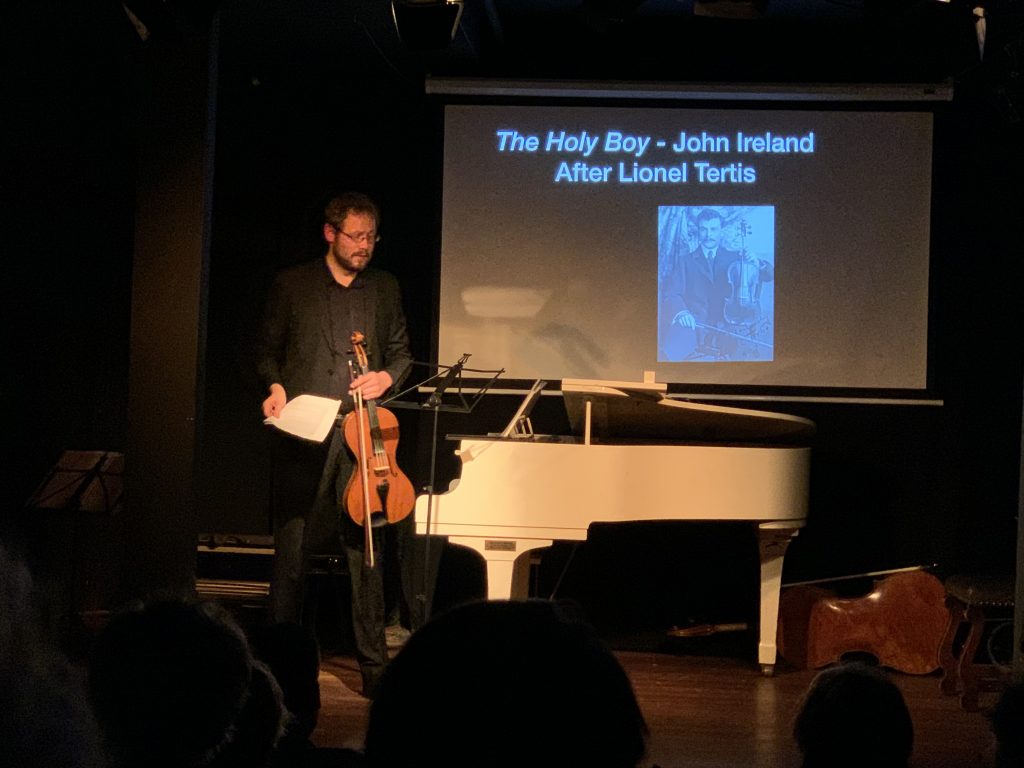DVS board member Emlyn Stam received his Ph.D. last month at Leiden University. In this article, he briefly summarizes his original research topic. Red.
by Emlyn Stam

Dr. Stam explains his thesis in words and musical examples at Theater Branoul, The Hague – October 29th 2019
Why do the performances of early-recorded violists from over a century ago sound so different from own? How might we describe their performances? What can we learn from them? And most importantly, can their musical and technical approach be used to create new performances today? These are some of the questions that occupied me in my work over the last five years on my dissertation: In Search of a Lost Language: Performing in Early-Recorded Style in Viola and String Quartet Repertoires. The project involved detailed analysis of recordings by violists Oskar Nedbal, Léon van Hout, Arthur Post, Pierre Monteux, Maurice Vieux and Lionel Tertis. I describe the way they use techniques like unnotated rhythmic and tempo flexibility, portamento, layering, ornamentation and vibrato to create highly personal performances.
I copied their performances as closely as possible and continued by extrapolating from their approach to create my own style copies. This work resulted in a recorded portfolio that accompanies the written thesis where you can listen to the original historical recordings and my own attempts at reinvigorating early-recorded style. Colleagues who wish to free themselves from the constraints of today’s neat, tidy, score-based performances may find the path I followed to be of interest. My work also sheds light on the historical record, detailing how the repertoire was heard at a time when many of today’s most revered, canonical composers were alive.
The dissertation and accompanying recordings can be downloaded here: https://openaccess.leidenuniv.nl/handle/1887/79999
